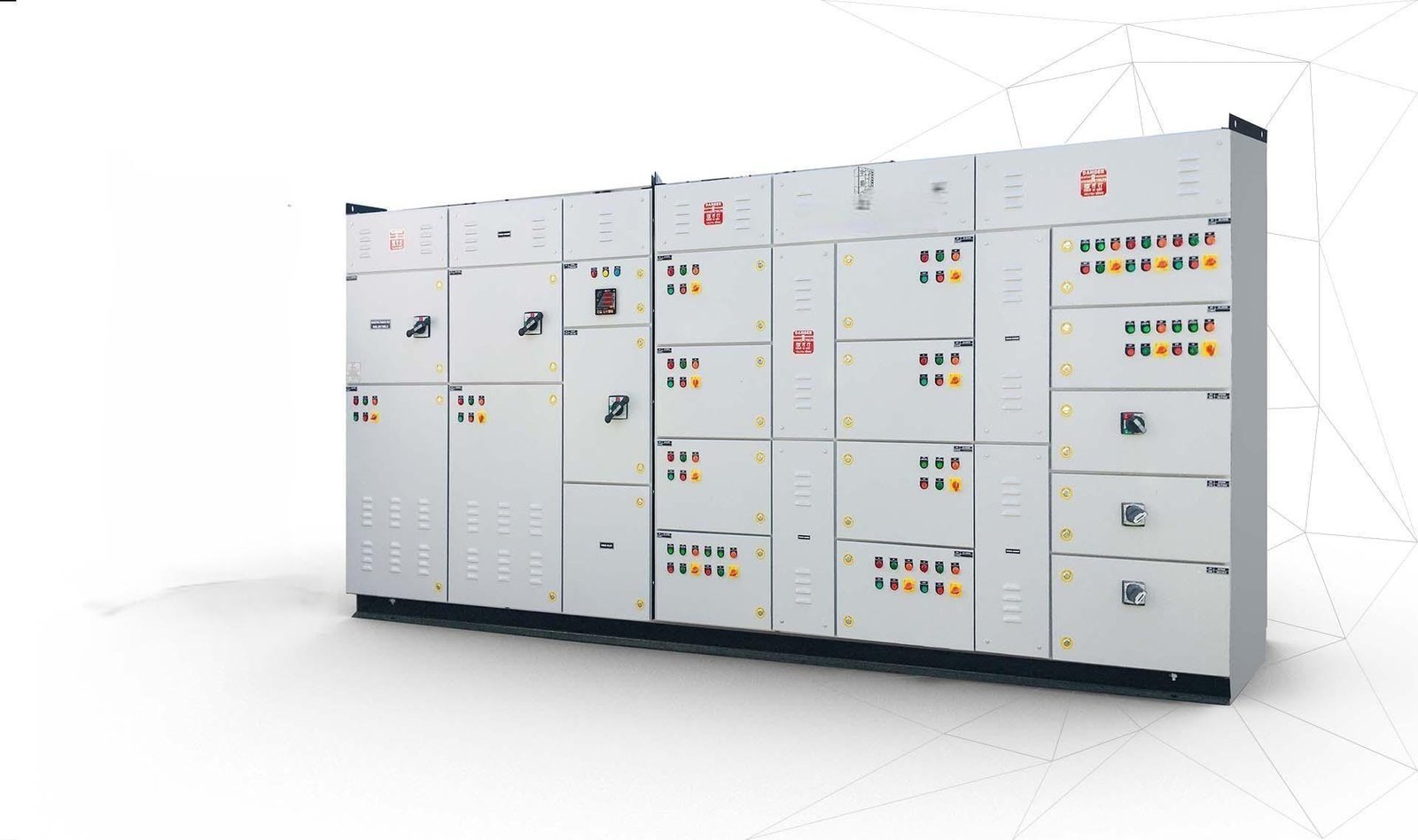SAAR INDUSTRIES

PMCC Panel
Power Control Center (PCC) Panel
A PCC panel, which stands for Power Control Center panel, is a critical component of electrical distribution systems in industrial and commercial settings. It serves as a centralized unit for controlling and distributing electrical power to various loads throughout a facility. PCC panels typically house circuit breakers, switches, meters, and other necessary equipment for managing power distribution effectively. They play a vital role in ensuring efficient energy utilization, monitoring power consumption, and providing protection against electrical faults, thereby contributing to the overall reliability and safety of the electrical system.A PCC panel, which stands for Power Control Center panel, is a crucial component of electrical distribution systems in industrial and commercial settings. It serves as a centralized unit for controlling and distributing electrical power to various loads throughout a facility.
Incoming Power Supply: The main electrical supply entering the PCC panel from an external source, such as a transformer or utility grid.
Circuit Breakers: Devices designed to protect electrical circuits from damage caused by overloads or short circuits, automatically tripping and interrupting the flow of electricity when an abnormal condition is detected.
Switches: Components allowing manual control over the flow of electricity to specific circuits or equipment, enabling operators to turn power on or off as needed.
Meters: Instruments measuring various electrical parameters such as voltage, current, and power consumption, providing valuable data for monitoring and managing the electrical system’s performance.
Busbars: Conductive bars or strips carrying electrical power from the incoming supply to various circuits or loads within the PCC panel, facilitating efficient power distribution.
Protection Devices: Additional safeguards including fuses, surge protectors, and voltage regulators, protecting the electrical system and connected equipment from damage due to electrical faults or fluctuations.
Enclosure: Housing all panel components, providing protection against environmental factors, dust, moisture, and physical damage. Typically constructed of sturdy materials like sheet metal or fiberglass.
Control and Monitoring Equipment: Optional devices such as relays, controllers, and communication interfaces enabling remote monitoring, data logging, and centralized control of the electrical system for enhanced efficiency and convenience.
Power Distribution: The primary function of a PCC panel is to distribute electrical power from the incoming supply to various circuits or loads within a facility. This includes routing power to equipment such as motors, pumps, lighting systems, and other electrical devices as needed.
Load Control: PCC panels enable operators to control the flow of electricity to specific circuits or equipment using switches or circuit breakers. This allows for the selective activation or deactivation of loads based on operational requirements or energy-saving considerations.
Protection: PCC panels incorporate protection devices such as circuit breakers, fuses, and surge protectors to safeguard the electrical system and connected equipment from damage caused by overloads, short circuits, voltage fluctuations, or other electrical faults.
Monitoring and Metering: Many PCC panels feature meters and monitoring devices to measure electrical parameters such as voltage, current, power factor, and energy consumption. This data provides valuable insights into the performance of the electrical system and helps identify any abnormalities or inefficiencies.
Safety Compliance: PCC panels adhere to industry standards and regulations for electrical safety, ensuring compliance with safety requirements and minimizing the risk of accidents or hazards in industrial environments.
Remote Monitoring and Control: Advanced PCC panels may include communication interfaces and networking capabilities for remote monitoring and control. This allows operators to access real-time data, receive alerts, and make adjustments to the electrical system from a central control room or via remote devices.
Integration with Building Management Systems: PCC panels can be integrated with building management systems (BMS) or supervisory control and data acquisition (SCADA) systems to enable centralized monitoring, control, and optimization of the entire facility’s electrical infrastructure.
Industrial Plants: PCC panels are extensively used in various industrial settings such as manufacturing plants, refineries, chemical processing facilities, and power generation plants to distribute and control electrical power to machinery, equipment, and production processes.
Commercial Buildings: PCC panels are employed in commercial buildings such as office complexes, shopping malls, hospitals, and hotels to distribute and manage electrical power for lighting, HVAC systems, elevators, escalators, and other building services.
Data Centers: PCC panels are critical components in data centers to distribute and regulate electrical power to servers, networking equipment, cooling systems, and other infrastructure components, ensuring uninterrupted operation and reliability of the facility.
Utilities: PCC panels are used by utility companies to distribute and control electrical power in substations, switchyards, and distribution networks, facilitating the transmission and delivery of electricity to residential, commercial, and industrial customers.
Infrastructure Projects: PCC panels are employed in infrastructure projects such as airports, seaports, railways, and highways to distribute and manage electrical power for lighting, signaling systems, communications equipment, and other critical infrastructure components.
Renewable Energy Systems: PCC panels are integrated into renewable energy systems such as solar power plants, wind farms, and hydroelectric facilities to distribute and control electrical power generated from renewable sources, optimizing energy production and grid integration
SAAR INDUSTRIES - one of the best manufacturers among all others in the Pune and make all types of junction boxes, earthing cables, control panels and cable trays.
Factory 2 :- Radhika Industrial park, Gat no 676, at post - Velu, Pune 412205
Factory 3 :- Radhika Industrial park, Gat no 676, at post - Velu, Pune 412205
Support@saargroupofindustries.com Sales@saargroupofindustries.com
